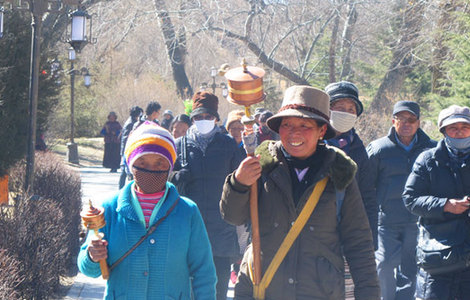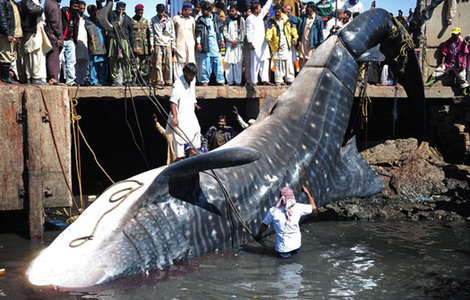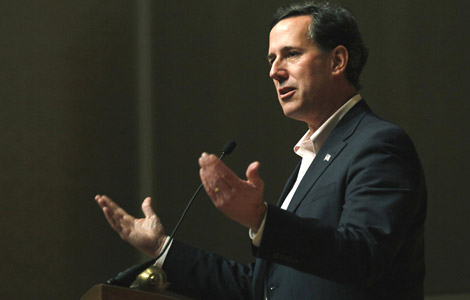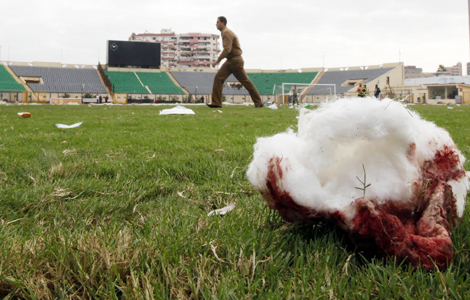Li renews campaign to ensure food safety
Updated: 2012-02-09 07:03
By Zhou Wenting and Wang Xiaodong (China Daily)
|
|||||||||
Vice-premier announces harsher punishment and better supervision
BEIJING / SHANGHAI - Stiffer financial penalties will be imposed on those found guilty of contaminating food, Vice-Premier Li Keqiang told a meeting on Wednesday.
"Food safety is an important issue that concerns everyone," Li said.
"Punishment will be increased for those guilty of endangering food safety, and supervision will be boosted to ensure the safety of food."
The meeting heard a report by the executive office of the Food Safety Commission under the State Council and reviewed progress made in the past year in ensuring food safety.
Illegal additives, including clenbuterol, a chemical dangerous to humans that reduces animal fat, and "gutter oil" or recycled cooking oil, were found in food last year.
Despite the success of the past year in the food safety campaign, severe challenges remain, according to the meeting.
In a national crackdown last year, the police dealt with 120 cases and 60,000 tons of gutter oil being sold as edible oil.
Police also dealt with 150 cases involving the illegal production and sale of clenbuterol and 12 producers were punished, according to statistics of the Ministry of Public Security.
Governments at all levels should shoulder the responsibility of keeping food safe, the meeting said.
An emergency mechanism should be set up to deal with incidents and a system to reward those who report food safety problems should be established, according to the meeting.
Harsher punishment and better monitoring from government agencies are important, experts said.
Qiu Baochang, head of the lawyers' group of the China Consumers' Association, said financial punishment is not much of a deterrent at present.
Consumers are lucky if their compensation for eating tainted food even covers their medical bills, he said.
But, he added, the latest Criminal Law amendment includes the death penalty to punish those who compromise food safety.
"This shows that the country attaches great importance to ensuring food safety," Qiu said.
He also suggested that local governments and their top officials should take responsibility for food safety.
Dong Jinshi, executive vice-president of the International Food Packaging Association, said only a quarter of the hotlines that consumers can use to report food issues are connected.
"We should have a nationwide unified phone number for food safety reports," he said.
Hot Topics
Kim Jong-il, Mengniu, train crash probe, Vaclav Havel, New Year, coast guard death, Internet security, Mekong River, Strait of Hormuz, economic work conference
Editor's Picks

|

|

|

|

|

|







